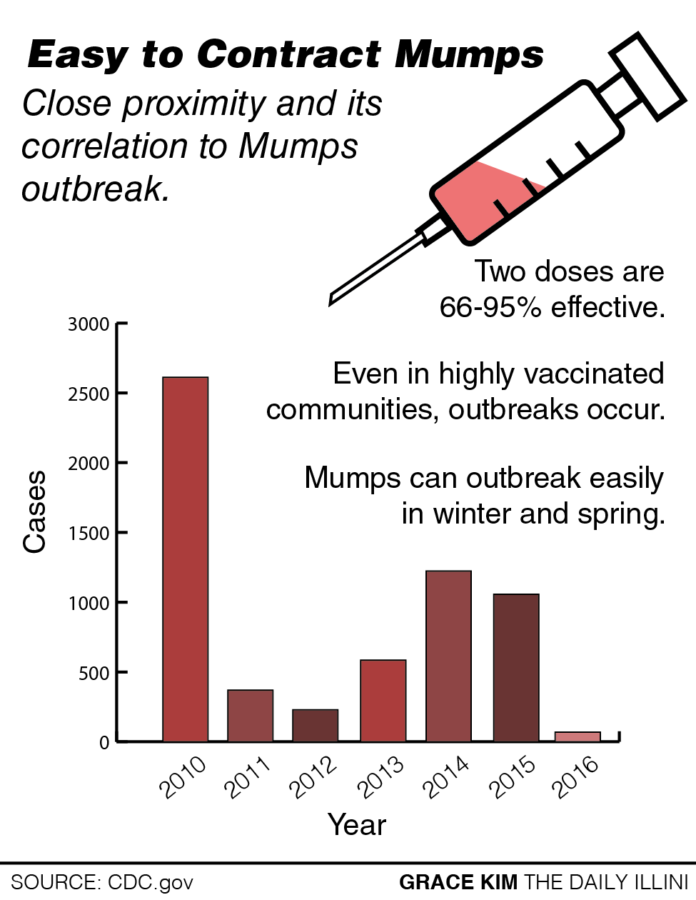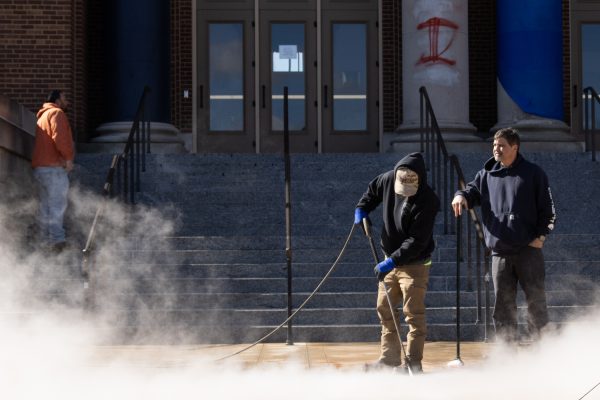Dance department defends against mumps outbreak
February 29, 2016
Linda Lehovec, associate professor and Bachelor of Fine Arts program co-directorss, shed light on the steps the dance department took to counter the mumps virus.
“We had deep cleaning done in all of our studios, including providing Clorox wipes to wipe off all the ballet barres and asking all faculty to not have students doing anything that required body to body contact,” she said in an email.
She said that she hasn’t seen anything like this in the dance department in her 21 years working in the department, emphasizing the unpredictability of the mumps.
“Both students were quarantined – the male for a two-week period and the female student for one week,” Lehovec said. “Having a student come down with the mumps really drove the importance of [eliminating contamination] home for us.”
Get The Daily Illini in your inbox!
Jenna Soldatiss, freshman in dance, described how she heard about the outbreak and the steps that she took to prevent herself from contracting the mumps.
She said that she was a little worried about getting the mumps, but she had gotten the vaccine. In addition to the vaccine, she said that she took extra steps in staying healthy from the mumps and other viruses by “washing hands a lot, carrying hand sanitizer and being OCD (Obsessive Compulsive Disorder).”
Both Lehovec and Soldati said that the nature of dance helped to permit the spread of illnesses.
“In our department we are in body to body contact a lot … We are also a small department that at times can feel almost familial, so we often don’t hesitate to share food or drink with a classmate,” Lehovec said.
A college campus is prime for the spread of the mumps virus, according to the Center for Disease Control and Prevention (CDC), as students are regularly in close proximity to one another and the vaccine is only 90 percent effectivess.
In addition, the weather shifting to warmer temperatures may only increase the spread of the virus, according to the CDC. Besides getting the booster vaccine, washing hands and preventing the spread of saliva are ways to prevent contracting mumps.
The outbreak is not the first time mumps has spread on campus; last semester several cases of mumps developed, prompting the University to offer free vaccinations.
“In consideration of the serious impact this outbreak poses to the campus, students who are considered to be at risk of infection as a result of potential exposure and who lack adequate vaccination protection are subject to restriction (exclusion) of activities within the community, including class, other events and housing for a period which may extend for several weeks,” said Robert Palinkas, the director of McKinley Health Centerss, and Renée Romano, vice chancellor for student affairsss, in a massmail sent in August.
abgandh2@dailyillini.com






